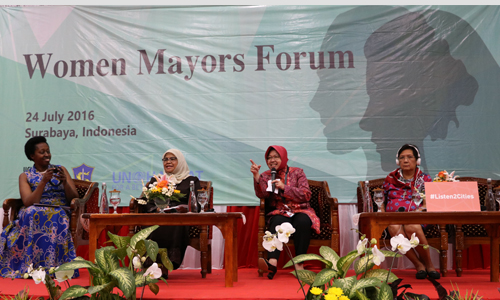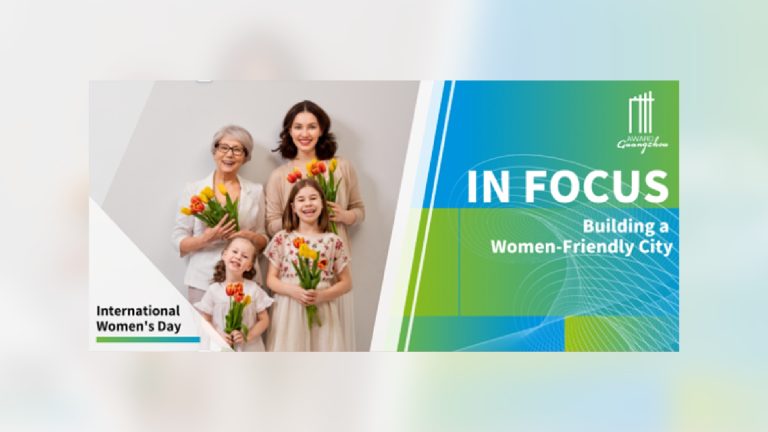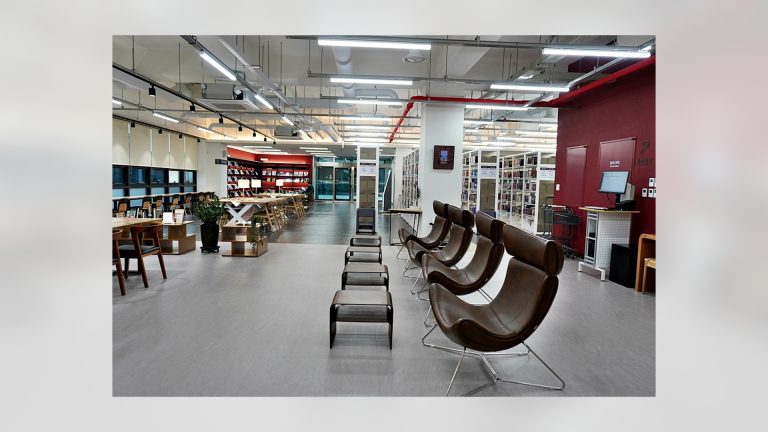24 July 2016, Surabaya – The Women Mayors Forum, a Parallel Event of the PrepCom3, saw an attendance of more than 400 people. Six women mayors graced the panel and shared their experiences and insights in the discussion which focused on how to enhance the representation and participation of women in leadership positions.
Led by Surabaya’s Mayor Tri Rismaharini, the other mayors were: Sally Ante-Lee (Sorsogon, Philippines), Maimunah Mohd Sharif (Seberang Perai, Malaysia), Illiza Sa’aduddin Djamal (Banda Aceh, Indonesia), Irma Juliandres Harilalaina (Fianarantsoa, Madagascar), and Celestine Ketcha Courtes (Bangangte, Cameroon).
They shared how they became mayors in the male-dominated political arena, fighting gender stereotypes, traditions, and doubts from others as well as within themselves. More importantly, they showed the concrete ways of how they gained people’s trust, transformed their communities, and paved the way for empowering women and girls.
In Surabaya, one of the projects of the local government called “Education Kampung” was developed from the idea that children and the youth are monitored at school and in their homes by teachers and parents, respectively. Outside of these places, monitoring the growth and development of the children is a responsibility that the city also takes seriously. To keep children and youth away from vices, the city facilitates the creation of different activities, such as sports and arts, that will nurture their skills and talents, and contribute to their personal growth and develop them to become future leaders.
On changing the prevailing mindset that hinders women from taking up positions of power, the women mayors expressed that women possess their own strength and skills for governing that should not be discounted or overlooked. Further, they gave the message and reminder to young women that they are strong and have the capacity to lead and inspire others, and that doing so begins with managing and believing in one’s self.
To move forward, it was highlighted that there is a need for peer-to-peer learning as there is much to be gained from established women’s networks in other regions, such as Africa. Using tools like social media can also raise awareness and foster greater involvement of women and men in creating livable communities and improving quality of life.











